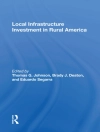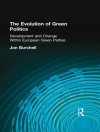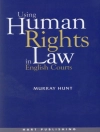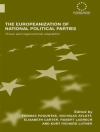Students can easily misstep when they first begin to do research. Leanne C. Powner’s new title
Empirical Research and Writing: A Student′s Practical Guide provides valuable advice and guidance on conducting and writing about empirical research. Chapter by chapter, students are guided through the key steps in the research process. Written in a lively and engaging manner and with a dose of humor, this practical text shows students exactly how to choose a research topic, conduct a literature review, make research design decisions, collect and analyze data, and then write up and present the results. The book′s approachable style and just-in-time information delivery make it a text students will want to read, and its wide-ranging and surprisingly sophisticated coverage will make it an important resource for their later coursework.
Tabela de Conteúdo
Part I: The Preliminaries
Chapter 1: From Research Topic to Research Question
Doing Social Science
Research Questions and This Course’s Research Project
From Research Topic to Research Question
Finding and Refining a Research Question
Writing Your Paper
Summary
Key Terms
Chapter 2: From Research Question to Theory to Hypothesis
What Is a Theory?
From Question to Theory
From Theory to Hypothesis
Writing Your Theory Section
Summary
Key Terms
Part II: The Practicalities
Chapter 3: Doing Pre-Research
The Parts of an Empirical Paper
How to Think About Literature(s)
How to Find Literature(s)
How to Organize Literature(s)
How to Write the Literature Review
Summary
Key Terms
Chapter 4: Choosing a Design that Fits Your Question
Types of Hypotheses
What Type of Analysis Should I Conduct?
Overview of Techniques
Summary
Key Terms
Chapter 5: Case Selection and Study Design for Qualitative Research
Qualitative Study Design
Hypothesis-Testing Techniques and Case Selection
Writing Your Methodology Section
Summary
Key Terms
Chapter 6: Qualitative Data Collection and Management
Information, Data, and Evidence
Measurement
Maximizing Leverage Over Your Hypotheses
Data Collection Techniques
Sources and Resources
Data Management Options
Writing About Data Collection
Summary
Key Terms
Chapter 7: Quantitative Data Collection and Management
Identifying Data Needs: What Cases?
Identifying Data Needs: What Variables?
Measurement: Matching Concepts to Indicators
Getting Ready-to-Use Data
Collecting and Managing Your Own Data
Summary
Key Terms
Chapter 8: Preparing Quantitative Data for Analysis
Transferring Data into Your Stats Program
Dealing With Missing Data
Preparing to Analyze Your Data
Other Data Manipulations
The Theory-Data Danger Zone: Endogeneity, Simultaneity, and Omitted Variable Bias
Summary
Key Terms
Chapter 9: Writing up Your Research
The Abstract
The Bookends
The Results: Conventions of Reporting and Discussing Quantitative Analysis
Discussing Qualitative Evidence and Claims
Summary
Key Terms
Part III: Post-paper Processes
Chapter 10: Practicing Peer Review
Writing Without Whining
Self-Editing
Practicing Peer Review
Writing Your Review of Peer Research
Summary
Key Terms
Chapter 11: Posters, Presentations, and Publishing
Presentations
Posters
Slip ‘n’ Slide
Post-paper Possibilities
Brief Remarks on Graduate Study in Political Science and International Relations
Summary
Sobre o autor
Leanne C. Powner holds a Ph.D. in political science from the University of Michigan, where she specialized in international relations, comparative politics, and research methods. She has taught at a diverse range of institutions, including the College of Wooster, OH, where she was the Juliana Wilson Thompson Visiting Assistant Professor of Political Science, and American University′s School of International Service and the Johns Hopkins University School of Advanced International Studies, where she specialized in teaching research methods. Her prior publications include the third (with D. Scott Bennett) and fourth editions of Applying the Strategic Perspective: Problems and Models (CQ Press, 2006 & 2010), along with a number of articles and papers on pedagogy, teaching practices, classroom techniques, and assessment appearing in PS: Political Science and Politics, International Studies Perspectives, and the Journal of Political Science Education. Powner was Webmaster for the Active Learning in International Affairs Section of the International Studies Association for seven years.












